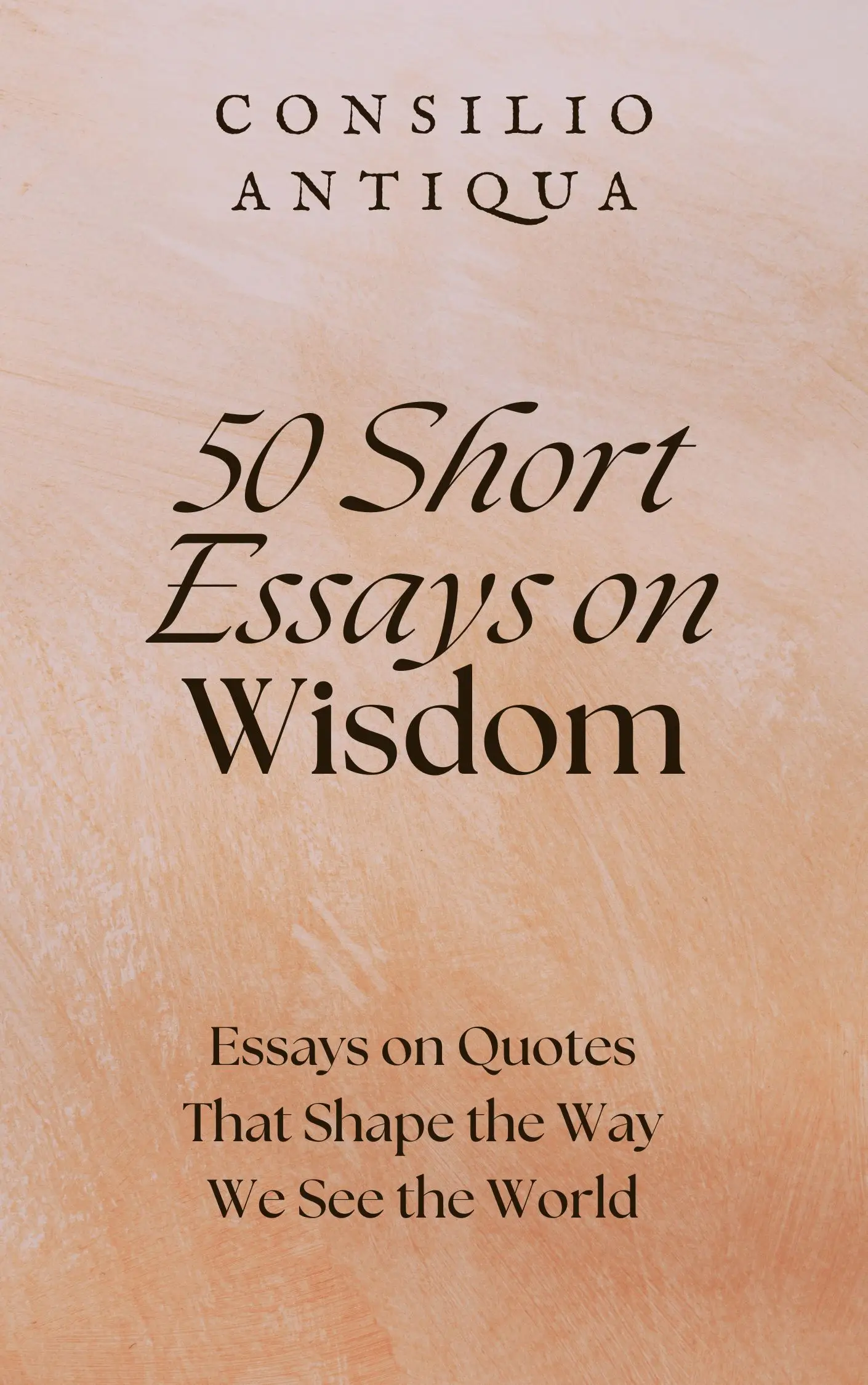
50 Short Essays on Wisdom | The Quiet Strength of Foresight
The Quiet Strength of Foresight
“Forewarned is forearmed.” – Miguel de Cervantes
The old wooden chest creaked open, revealing not gold, but a collection of faded letters, each a whisper from the past. Within those brittle pages lay a truth as enduring as the wood itself: forewarned is forearmed. This ancient wisdom, echoing across centuries, speaks to the power of preparation, the quiet strength found in anticipating challenges, and the profound impact of knowledge on our ability to navigate life's complexities. This essay will explore the enduring relevance of this proverb, examining its historical roots and its application to the multifaceted landscape of modern life.
Cervantes's pithy proverb, though concise, encapsulates a wisdom found in countless cultures and across millennia. From the meticulous preparations of ancient armies to the careful planning of seasoned farmers, the understanding that knowledge of impending events grants a significant advantage has been a cornerstone of human survival and success. Sun Tzu's Art of War, for instance, emphasizes the crucial role of intelligence gathering and strategic planning. Similarly, ancient Greek philosophers stressed the importance of prudence and foresight as virtues essential for a flourishing life. The proverb's enduring power lies in its simple yet profound truth: awareness empowers action.
At its heart, "forewarned is forearmed" speaks to the transformative power of anticipation. It's not merely about predicting the future; it's about cultivating a mindful awareness of potential challenges and opportunities. It's about gathering information, assessing risks, and strategically planning our responses. This proactive approach allows us to move beyond reactive patterns, transforming fear into informed action. The wisdom lies not just in knowing what might come, but in using that knowledge to build resilience, to strengthen our defenses, and to seize opportunities with greater confidence. This is a wisdom that transcends specific contexts, applicable to personal relationships, professional endeavors, and even our approach to our own well-being.
Consider the young entrepreneur meticulously researching market trends before launching a new product, mitigating potential risks and maximizing chances of success. Or the individual diligently saving for retirement, foreseeing future financial needs and securing their long-term stability. Even in personal relationships, the ability to anticipate potential conflicts, to understand unspoken needs, and to communicate proactively can strengthen bonds and prevent misunderstandings. Conversely, ignoring warning signs – whether in our finances, our health, or our relationships – can lead to unforeseen difficulties and amplified suffering. The modern world, with its complexities and rapid pace, only underscores the importance of this ancient wisdom.
How often do we find ourselves caught off guard, overwhelmed by events we could have, perhaps, foreseen? What warning signs have we ignored, what opportunities have we missed due to a lack of preparation? This proverb invites us to cultivate a more mindful and proactive approach to life. It encourages us to seek knowledge, to assess risks, and to plan strategically, not with a spirit of fear, but with a quiet confidence born of preparation. The benefits are not merely material; they extend to a deeper sense of control, a greater capacity for resilience, and a more profound sense of agency in shaping our own lives.
"Forewarned is forearmed" is more than a proverb; it's a call to action, a reminder of the power we hold to shape our destinies. By cultivating foresight, by embracing preparation, we equip ourselves not just to survive, but to thrive in the face of life's inevitable challenges. The quiet strength of anticipation is a gift we can all cultivate.
